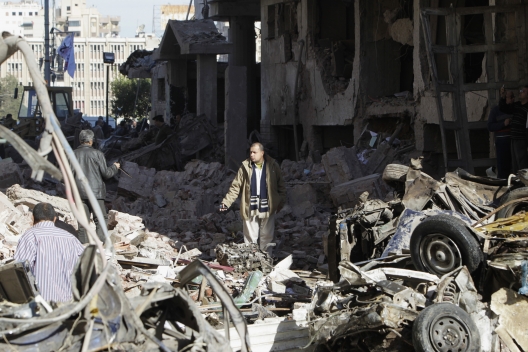 Without a doubt, Egypt faces difficult times with constant attacks on security and military personnel, installations, and outposts. With democratic development on the backburner, the military-backed interim government has turned to increased authoritarian repression to stamp out political dissent and revive the old sense of normalcy—but normalcy in Egypt is not stability. As pointed out in his latest article on EgyptSource, Aziz El-Kaissouni, a political analyst and a former correspondent for Reuters, describes how this policy of repression previously led to the kind of radicalization that gave birth to figures such as Ayman al-Zawahri—and is likely to do so again.
Without a doubt, Egypt faces difficult times with constant attacks on security and military personnel, installations, and outposts. With democratic development on the backburner, the military-backed interim government has turned to increased authoritarian repression to stamp out political dissent and revive the old sense of normalcy—but normalcy in Egypt is not stability. As pointed out in his latest article on EgyptSource, Aziz El-Kaissouni, a political analyst and a former correspondent for Reuters, describes how this policy of repression previously led to the kind of radicalization that gave birth to figures such as Ayman al-Zawahri—and is likely to do so again.
Kaissouni argues that the decapitation and marginalization of the Muslim Brotherhood in Egypt has created a breakdown in the hierarchical control over rank-and-file members of the organization. Coupled with the anger over unfair imprisonment and the loss of lives over the months since Mohamed Morsi’s ouster, involvement of Islamist forces unbound by a principle of nonviolence, and the closure of political space to either voice dissent or find justice, Kaissouni envisions a resurgent radicalization as a direct consequence of the Egyptian regime’s actions.
For more, please read his article, “Egypt’s Crackdown May Bring Terror Closer to Home,” on EgyptSource.
Image: Photo: A man walks near debris after an explosion near a security building in Egypt's Nile Delta city of Mansoura in Dakahlyia province, about 120 km (75 miles) northeast of Cairo December 24, 2013. A car bomb tore through a police compound in Egypt's Nile Delta on Tuesday, killing 13 people and wounding more than 130, security officials said, in one of the deadliest attacks since the army deposed Islamist President Mohamed Mursi in July. REUTERS/Mohamed Abd El Ghany
